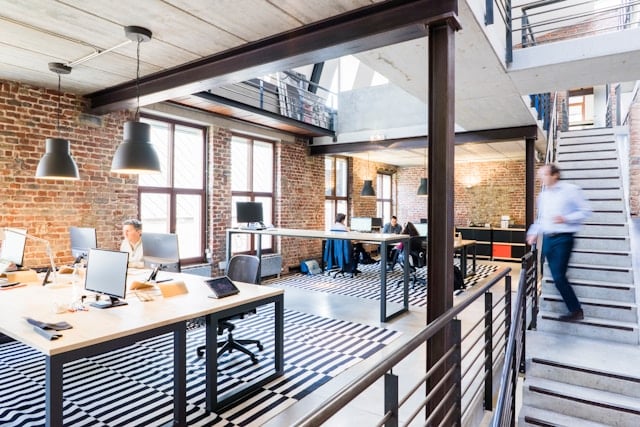How Does the Increase in Remote Working Affect Demand for Residential Office Spaces?

The pandemic has redefined the way we approach our everyday lives, and the working environment is no exception. Many businesses were quick to adapt to remote working in response to lockdown measures, and in many cases, the transition has been so successful that it’s set to become the norm. But what effect does this have on the demand for real estate? Specifically, how is this shift influencing the demand for residential office spaces? Let’s delve into these questions.
The Impact of the Pandic on Working Habits
Before the pandemic, remote working was a relatively uncommon practice. However, when lockdown restrictions were put in place, companies had no choice but to adapt. Employees traded in their daily commute for a home office setup, and for many, the change was a welcome one.
Also to read : How to Create a Balanced Mix of Tenants in Multi-Let Commercial Properties?
Remote working offers a level of flexibility that traditional office-based roles rarely provide. Employees can balance their work and personal life more effectively, and without a commute, they can save both time and money. Surveys indicate that the majority of workers would prefer to continue working remotely at least part of the time once the pandemic is over, suggesting that the shift towards remote working could be here to stay.
This change in working habits has a significant impact on real estate trends, particularly the demand for residential office spaces.
In parallel : How to Navigate the Conversion of Commercial Spaces to Residential in UK City Centers?
Rise in Demand for Residential Office Spaces
The shift towards remote working has naturally led to a rise in the demand for residential office spaces. After all, if you’re spending large portions of your day working from home, it makes sense to dedicate a space to function as your office.
In fact, a recent study found that one in three workers now considers a home office space to be a necessity. The desire for a separate workspace in the home has become so prevalent that it’s driving decisions on whether to move house, with some workers even willing to sacrifice other amenities to ensure they have room for a home office.
The impact of this shift is likely to be particularly noticeable in cities, where space is often at a premium. As a result, we may see properties with dedicated office spaces become more desirable and therefore more valuable.
The Effect on Commercial Real Estate
While the rise in remote working is increasing the demand for residential office spaces, it’s having the opposite effect on commercial real estate. With fewer businesses requiring office space, demand is falling dramatically.
Office vacancies in major cities have reached all-time highs, and it’s predicted that the commercial real estate market may take several years to recover. Some property developers are even considering converting unused office spaces into residential properties to meet the growing demand for home offices.
That’s not to say that office spaces will become obsolete. Many businesses recognize the benefits of having a physical location, such as promoting team cohesion and providing a space for meetings. However, the nature of office space may change, with businesses opting for smaller, more flexible spaces that can be adapted to meet their needs.
The Long-Term Impact of Remote Working on Real Estate
It’s clear that the shift towards remote working is having a significant impact on the real estate market. As more and more employees move towards working from home, the demand for residential office spaces will continue to rise. This could lead to an increase in property prices, particularly in cities where space is limited.
At the same time, the demand for commercial office spaces is likely to decrease. This could lead to a surplus of commercial properties, which may result in a decrease in property prices in these areas. However, there may also be opportunities for property developers to convert these spaces into residential properties, thereby meeting the growing demand for home office spaces.
In conclusion, the increase in remote working is reshaping the landscape of the real estate market. While this presents challenges, it also provides opportunities for innovation and growth. As we move towards a more flexible working culture, it will be interesting to see how the real estate market continues to adapt.
Evolving Needs and Preferences: Hybrid Work and the Housing Market
The rise in remote work has not only led to an increased demand for dedicated office space but has also influenced the broader housing market. The evolving needs and preferences of remote workers are significantly impacting the type of residential properties in demand.
Workers are now seeking homes that offer dedicated office spaces, high-speed internet, and a quiet environment conducive to productivity. The desire for home offices is so pervasive that it’s influencing buying decisions, with potential buyers prioritizing homes with office spaces over other factors such as proximity to urban centers or transportation hubs.
With the advent of hybrid work models, where employees split their time between working from home and the traditional office, property location has become less critical. This trend is leading to a rise in remote workers moving out of urban areas like San Francisco to suburban or even rural areas, driving up home prices in these regions.
Moreover, remote work is encouraging a greater emphasis on work-life balance. As a result, homes that provide amenities that facilitate recreation and relaxation, such as outdoor spaces or proximity to natural areas, are seeing an uptick in demand.
Conclusion: The Far-Reaching Impact of Remote Working on the Real Estate Industry
The impact of remote working on the real estate industry is profound and multifaceted. As remote work becomes more prevalent, the demand for residential office spaces continues to surge, influencing the housing market and real estate trends significantly.
The shift towards remote and hybrid work models is changing workers’ preferences and needs, driving the demand for homes with office spaces and amenities that support work-life balance.
Simultaneously, the commercial property sector is seeing a decline in demand office spaces. However, this presents a unique opportunity for the real estate industry to repurpose these commercial properties into residential units or co-working spaces, effectively meeting the changing needs of the market.
While the rise in remote work presents challenges for the real estate market, it also opens doors for growth and innovation. As we become more immersed in this new working culture, the real estate industry must continue to adapt and evolve to cater to the changing demands of remote workers.
In essence, the increase in remote work is not only reshaping our working habits but also significantly affecting the broader real estate market. It’s a disruptive force that is driving change and innovation in the industry, and its impact will likely continue to be felt for years to come.
